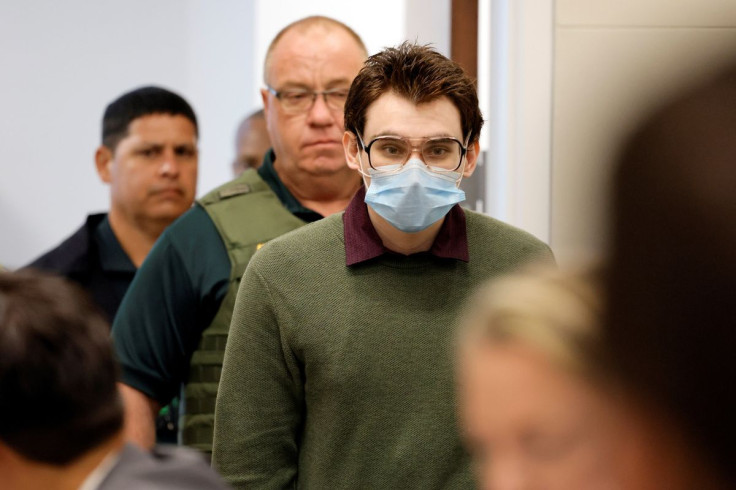Penalty Phase Begins For Man Facing Death For Florida Mass School Shooting

The prosecutor began opening arguments on Monday in the penalty phase of the trial of the man who killed 17 people at a Florida high school on Valentine's Day in 2018 by naming each victim during a detailed recounting of one of the deadliest school shootings in U.S. history.
Nikolas Cruz pleaded guilty in October to the premeditated murder of 14 students and three staff members at Marjory Stoneman Douglas High School in Parkland, about 30 miles (48 km) north of Fort Lauderdale.
In this penalty phase, jurors will determine whether he should be sentenced to life in prison or receive the death penalty. A decision could take several months.
"I'm going to speak to you about the unspeakable, about this defendant's goal-directed planned, systematic murder -- mass murder -- of 14 students, an athletic director, a teacher and a coach," prosecutor Michael Satz told Broward County jurors, saying they would also see video of the crime taken by cameras at the school.
Satz named each person who was shot and wounded, while primarily referring to Cruz only as "the defendant." He said Cruz had planned to be a school shooter long before the attack.
The statements included details ranging from the numerous times each victim was shot, the style of weapon and the number of ammunition cartridges Cruz carried, to his visit to a sandwich shop where he purchased a beverage after leaving the school.
Family members of the victims present in court shook their heads, some of them weeping, as Satz detailed the massacre.
Cruz, dressed in a gray-and-black sweater and wearing a black mask, was slumped over during much of Satz's statement. He appeared to write several notes on paper and pass them to his lawyer.
Cruz, a 19-year-old expelled student with a history of mental health and behavioral problems at the time of the shooting, said in his guilty plea he was "very sorry" and asked to be given a chance to help others.
Prosecutors at the Broward State's Attorney Office in arguing for the death penalty have noted in court documents that the shooting involving an AR-15 rifle was "cold, calculated and premeditated."
The jury must be unanimous to recommend that Cruz be executed. If any of the 12 jurors objects, Cruz will be sentenced to life in prison without parole.
Broward County Circuit Judge Elizabeth Scherer is presiding over the proceedings, which are being held in Fort Lauderdale.
U.S. gun violence has gotten renewed attention following recent mass shootings including one at an Independence Day parade outside Chicago that killed seven people, and another in May at a school in Uvalde, Texas, that left 19 children and two teachers dead.
President Joe Biden in June signed the first major federal gun reform in three decades, which he has celebrated as a rare bipartisan agreement.
At a White House event last week to herald the law's passage, Biden was interrupted by Manuel Oliver, whose son Joaquin was murdered at Marjory Stoneman Douglas.
Oliver shouted "we've already gone through this for years and years" and said more needs to be done.
Some teenagers who survived the deadly rampage formed "March for Our Lives," an organization calling for gun control legislation such as a ban on assault-style rifles.
Cruz was 18 when he legally purchased the rifle from a licensed gun dealer.
© Copyright Thomson Reuters {{Year}}. All rights reserved.




















